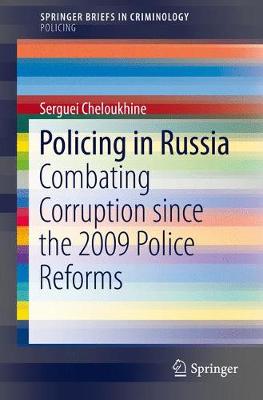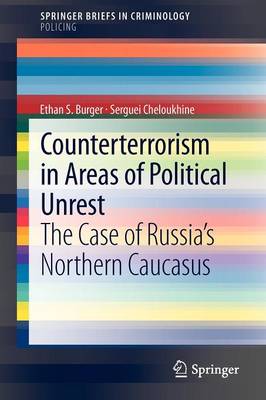SpringerBriefs in Policing
2 total works
This Brief provides an in-depth look at crime and corruption in Russian Law Enforcement, in the fifteen years since the 2009 police reforms. It focuses on corruption and organized crime at various levels of public services and law enforcement, how these organized crime networks operate, and how to enhance police integrity and legitimacy in this context.
It begins with a short overview of the history of law enforcement in the Soviet and Post-Soviet context, and the scope of organized crime on the operations of local businesses, public services, and bureaucratic offices. It provides an in depth examination of how organized crime developed in this context, to fill a void between the supply and demand of various goods and services. Based on an in-depth survey of police integrity and corruption in Russia, it provides key insights into how countries in a transition to democracy can maintain and enhance legitimacy of their police force.This Brief will be of interest to researchers in Criminology and Criminal Justice, particularly with a focus on policing, corruption or organized crime, as well as related disciplines such as political science.
Counterterrorism in Areas of Political Unrest
by Ethan S. Burger and Serguei Cheloukhine
Political transitions often create new law enforcement challenges. This Brief provides an examination of such special law enforcement challenges in the Northern Caucasas, both due to the unique structure of the crime groups that are active in the region, and to the unique social and political environment in which they operate.
In 2002, Russian President Vladamir Putin declared the end of the war in Chechnya. In 2006, he announced the insurgency was defeated. Yet today, Russia maintains a significant Internal Police presence in the Northern Caucasus to contain approximately 700 insurgents at a cost estimated to be more than the equivalent of $1 billion per year. Russian law enforcement, armed forces, and their local proxies are fighting irregular forces that operate in a manner akin to organized crime groups or terrorist cells. These groups have formed flexible networks which can sustain heavy losses, including the “decapitation” of their leaders, only to reconstitute themselves ready to fight another day.
Beginning with a historical overview of the police and military structures in the region, this Brief provides a case study into the origins, structures, and unique strategies for counter-terrorism policing in these complex conditions. It also provides recommendations for the future, and a framework for understanding similar cases of terrorist operations in areas of political unrest, an increasing global threat.

